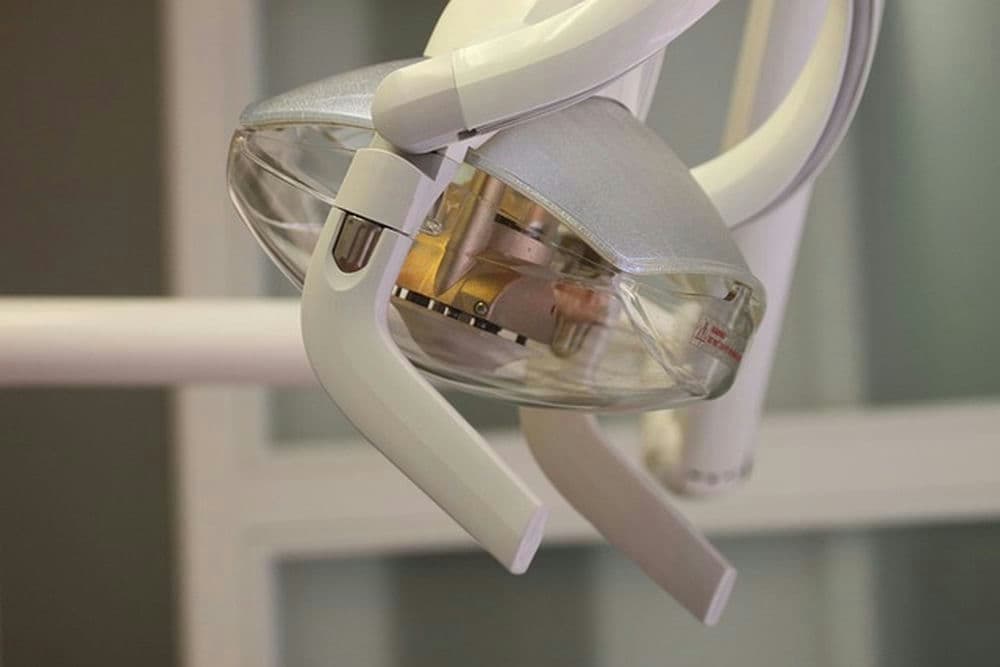Pages
permanent dental implants
2/2/2023

Because the titanium in the implants fuses along with your jawbone, the implants won't slip, make noise or cause bone damage the way fixed bridgework or dentures might. And the parts can't decay like your personal teeth that assist commonplace bridgework can. In usual, dental implants may be right for you if you:Have a number of lacking teethHave a jawbone that's reached full growthHave sufficient bone to secure the implants or are able to have a bone graftHave fit oral tissuesDon't have health conditions that may affect bone healingAre unable or unwilling to wear denturesWant to enhance your speechAre inclined to commit a number of months to the processDon't smoke tobaccoLike any surgical procedure, dental implant surgery poses some health risks. Problems are rare, though, and once they do occur they are typically minor and easily handled. Risks include:Infection at the implant siteInjury or damage to surrounding buildings, akin to other teeth or blood vesselsNerve damage, which may cause pain, numbness or tingling to your herbal teeth, gums, lips or chinSinus complications, when dental implants placed in the upper jaw protrude into one of your sinus cavitiesHow you prepareThe making plans activity for dental implants may contain a lot of experts, adding a doctor who specializes in conditions of the mouth, jaw and face (oral and maxillofacial surgeon), a dentist specializing in treating constructions that support tooth, similar to gums and bones (periodontist), a dentist who designs and fits artificial teeth (prosthodontist), or once in a while an ear, nose and throat (ENT) professional. Because dental implants require one or more surgical methods, you need to have a thorough analysis to prepare for the task, including a:Comprehensive dental exam.
Parts of your implant can loosen or wear out with time. This can result in the implant not operating if the problem is not handled quickly. You are responsible for the long-term care of your implants. Your local dentist can take care of your dental implants. This is at your own cost. If you've got a bone graft, this may cause swelling, bruising and pain.
cosmetic dental implants
2/1/2023

)Chew on any other side of your mouth. (If you had implants placed on each side, eat soft foods for a few days, after which add other foods as your consolation level allows. )Brush and floss daily. Clean the implant site as directed by your health practitioner. What are the advantages of dental implants?Dental implants offer a wide array of advantages. They can:Improve speech and chewing capacity.
Most crowns and bridges last around 15 years and most dentures last at least seven years, but this timeline varies. When should I see my dentist?If you have got tooth loss that’s interfering together with your first-rate of life, schedule an appointment with a dentist to talk about your alternative alternatives. They can assist examine if dental implants are the correct answer for you. Are dental implants painful?Dental implant placement is a surgical manner. Like any surgical system, some pain is normal. But nonsteroidal anti inflammatory drugs (NSAIDs), equivalent to ibuprofen, may also help reduce pain and swelling associated with dental implant surgical procedure. You can also reduce your risk of pain by avoiding the gym for a few days. Raising your heart rate, particularly in the first 72 hours, can result in greater pain, swelling and bruising. Are dental implants safe?Yes, dental implants are safe when placed by a skilled and experienced medical professional. Dentists have advised dental implants for over 50 years. As long as you have healthy teeth and gums and decide to practising good oral hygiene, dental implants could be a lifelong answer to tooth loss.
average cost of full dental implants
2/23/2023

Have certain health conditions, reminiscent of bone issues or autoimmune illnesses. Every person is alternative with a unique health historical past. To discover needless to say if you qualify for dental implants, talk to your dentist. How long does it take to recuperate from dental implant surgical procedure?Dental implant healing times can vary, but most people can resume normal things to do in about three days. Even so, it can still take a few months for your jawbone to fuse around the implant. This technique is osseointegration, and it’s vital for the long-term fulfillment and stability of your dental implant.
The dental team tells you if they think that the danger is higher than normal for you. Parts of your implant can loosen or wear out with time. This may end up in the implant not operating if the problem is not handled quickly. You are responsible for the long-term care of your implants. Your local dentist can care for your dental implants. This is at your personal cost. If you have a bone graft, this can cause swelling, bruising and pain. Giving your permission (consent)We want to contain you in selections about your care and remedy. If you choose to have a dental implant, we ask you to sign a consent form. This says that you just conform to have the remedy and understand what it comes to. If you want more information about our consent method, please speak to a member of staff caring for you.
dental implants in my area
2/26/2023

(But they’re not invulnerable to gum ailment, so it’s still vital to apply good oral hygiene. )What are the dangers or issues of dental implants?Like any surgery, dental implant placement incorporates the expertise for problems. Possible risks come with:Infection. Sinus damage. Nerve damage. Improper implant placement.
If you intend on having sedation, prepare for a depended on friend or family member to drive you home after your procedure. What occurs during dental implant surgery?During dental implant surgical procedure, your doctor will:Give you anesthesia. They’ll administer local anesthesia to numb your gums. If you opted for sedation, they’ll provide you with those medications besides. Create an incision. Once you’re relaxed, your health care provider will make an incision (cut) in your gums where the dental implant will go. This exposes the bone below so your surgeon can place the implant. Prepare your jaw. Your health practitioner will use a sequence of specialized instruments to create an opening on your jawbone. They’ll widen the opening until it’s just the right diameter for your new dental implant. Place the dental implant.